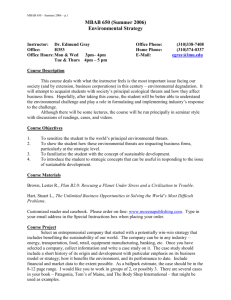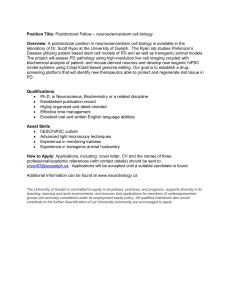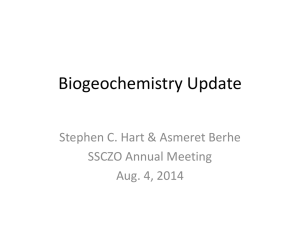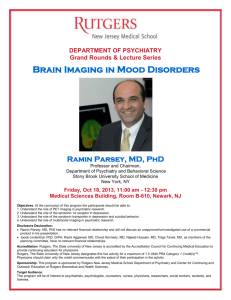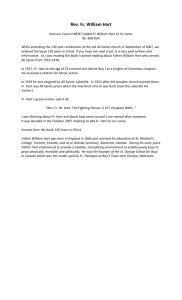Bio - New Jersey Center for Biomaterials
advertisement
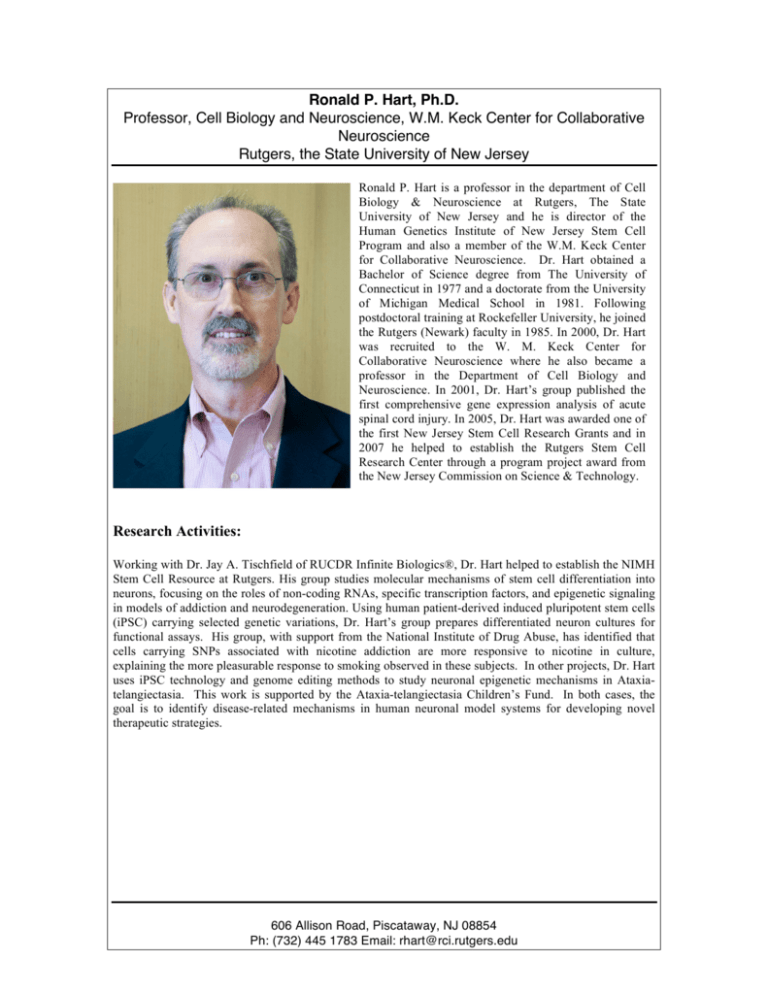
Ronald P. Hart, Ph.D. Professor, Cell Biology and Neuroscience, W.M. Keck Center for Collaborative Neuroscience Rutgers, the State University of New Jersey Ronald P. Hart is a professor in the department of Cell Biology & Neuroscience at Rutgers, The State University of New Jersey and he is director of the Human Genetics Institute of New Jersey Stem Cell Program and also a member of the W.M. Keck Center for Collaborative Neuroscience. Dr. Hart obtained a Bachelor of Science degree from The University of Connecticut in 1977 and a doctorate from the University of Michigan Medical School in 1981. Following postdoctoral training at Rockefeller University, he joined the Rutgers (Newark) faculty in 1985. In 2000, Dr. Hart was recruited to the W. M. Keck Center for Collaborative Neuroscience where he also became a professor in the Department of Cell Biology and Neuroscience. In 2001, Dr. Hart’s group published the first comprehensive gene expression analysis of acute spinal cord injury. In 2005, Dr. Hart was awarded one of the first New Jersey Stem Cell Research Grants and in 2007 he helped to establish the Rutgers Stem Cell Research Center through a program project award from the New Jersey Commission on Science & Technology. Research Activities: Working with Dr. Jay A. Tischfield of RUCDR Infinite Biologics®, Dr. Hart helped to establish the NIMH Stem Cell Resource at Rutgers. His group studies molecular mechanisms of stem cell differentiation into neurons, focusing on the roles of non-coding RNAs, specific transcription factors, and epigenetic signaling in models of addiction and neurodegeneration. Using human patient-derived induced pluripotent stem cells (iPSC) carrying selected genetic variations, Dr. Hart’s group prepares differentiated neuron cultures for functional assays. His group, with support from the National Institute of Drug Abuse, has identified that cells carrying SNPs associated with nicotine addiction are more responsive to nicotine in culture, explaining the more pleasurable response to smoking observed in these subjects. In other projects, Dr. Hart uses iPSC technology and genome editing methods to study neuronal epigenetic mechanisms in Ataxiatelangiectasia. This work is supported by the Ataxia-telangiectasia Children’s Fund. In both cases, the goal is to identify disease-related mechanisms in human neuronal model systems for developing novel therapeutic strategies. 606 Allison Road, Piscataway, NJ 08854 Ph: (732) 445 1783 Email: rhart@rci.rutgers.edu

